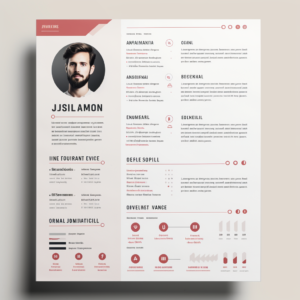Introduction
Human Resources (HR) management is multifaceted and pivotal in shaping an organization’s success. HR managers oversee functions such as recruitment, talent acquisition, employee relations, and compliance. However, skills required for this role vary significantly based on company size and nature. In this article, we will explore HR managers’ foundational skills and how their daily job functions differ across companies, particularly in small startups versus large, multi-department organizations.
Basic Skills Required for HR Managers
Before delving into differences between HR roles in various companies, let’s outline the foundational skills HR’s should possess:
- Recruitment and Talent Acquisition: HR managers need strong recruiting skills to attract top talent. This involves creating job descriptions, conducting interviews, and assessing candidates.
- Employee Relations: Building and maintaining positive relationships with employees is crucial. HR managers should excel in handling conflicts, addressing concerns, and fostering a healthy work environment.
- Compliance and Legal Knowledge: Staying updated with labor laws and regulations is vital to ensure compliance in areas such as employment contracts, benefits, and workplace safety.
- Communication: Effective communication is key in HR, from conveying policies to resolving disputes, requiring excellent verbal and written skills.
- Organizational Skills: Managing HR processes, from payroll to performance reviews, demands strong organizational skills to ensure smooth operations.
- Adaptability: The HR landscape is ever-evolving, requiring HR managers to adapt to changes in technology, workplace trends, and employee expectations.

This image was generated using the Discord AI platform.
Differences in HR Roles Between Companies
- Small Startups:
- Generalist Role: HR managers in startups often play a more generalist role, handling all HR functions, including recruitment, onboarding, payroll, and office management.
- Flexibility and Agility: Startups demand quick adaptation to changing priorities and limited resources, emphasizing efficiency.
- Employee-Centric: In startups, building a strong company culture and ensuring employee satisfaction are paramount, leading HR managers to focus on engagement and team building.
- Large Companies with Multiple Departments:
- Specialized Roles: Larger organizations have specialized HR roles for recruitment, benefits administration, employee relations, and compliance.
- Structured Processes: Established HR processes and systems are common, requiring HR managers to maintain and enhance them.
- Compliance and Policy: Larger companies prioritize strict compliance with labor laws and policies, leading HR managers to work closely with legal and compliance teams.
- Data-Driven: Data-driven decision-making is emphasized, with HR managers using analytics to optimize hiring processes, employee performance, and workforce planning.
Conclusion
HR managers are essential in every organization, with skills consistent across the board. However, daily job functions vary considerably based on the company’s size and nature. Small startups require agility and adaptability, while larger companies emphasize specialization and adherence to processes and compliance. HR managers who understand and adapt to these differences excel in their roles, contributing to organizational success.
For beginners we recommend this online course: “HR Foundations: Core Human Resources” by Linkedin learning.
Read E.learn.guide’s article “The Diverse World of HR Management” for more information.












